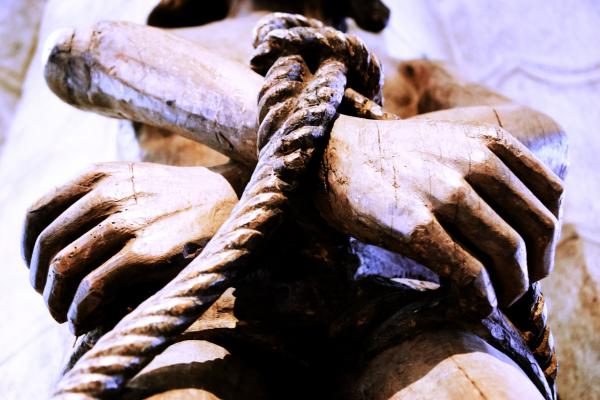THE BASILICA OF St. Bartholomew on the Island in Rome holds the bones of the apostle St. Bartholomew, who delivered the gospel of Matthew to India, southern Arabia, and Syria. Spreading the seditious good news eventually got him killed—crucified upside down in Baku, capital of modern Azerbaijan. Bartholomew proclaimed the resurrection of Jesus until the soldiers cut off his head.
In 1999, this church nestled on an island in the Tiber River was dedicated to modern Christian martyrs. Entering its cool interior, one can walk a global Via Dolorosa—each side altar is dedicated to parts of the world where Protestants, Catholics, and Orthodox have been killed for their faith.
The relics include a letter from Franz Jägerstätter, the Austrian farmer beheaded for refusing to serve in Hitler’s army, and the missal of Salvadoran Archbishop Óscar Romero left on the altar when he was assassinated during Mass in 1980.
Christians today fall out over Christian martyrs and persecution in a right/left divide. We fight about numbers. In 2015, Christian Freedom International released an often repeated statistic suggesting that Christians are “martyred for their faith every five minutes.” This has been widely debunked. But it raises questions about definitions, methodologies, and theological perspectives.
Thomas Schirrmacher directs the International Institute for Religious Freedom, which runs a research project with several universities to measure Christian persecution. He estimates that there are 7,000 to 8,000 Christian martyrs each year, a number that roughly matches the Open Doors World Watch List, which reported 7,106 Christians killed in 2015, an increase over previous years and far less than one Christian every five minutes.
Read the Full Article

